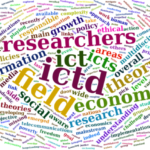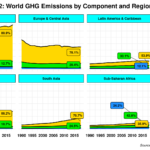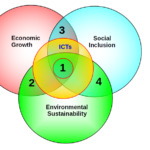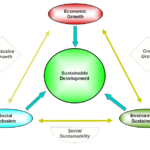Below is a communication I sent to BDP Senior Management on the above.
In lieu of the changes that are heading our way in the near future, I thought I should share with you an early report on the outcomes for the recent Istanbul CoP on ICTs, Inclusive Governance and Conflict Prevention.
- First of all, I will like to thank you for your participation in the event and for your valuable inputs during the first day, inputs that the DGG/e-gov team on the ground factored in to guide most of the ensuing discussions among CoP participants.
- As you are aware, this is the first ever joint CoP between BDP and BCPR. Although I was unable to be there for health reasons, the feedback we got at the end of the meeting was very positive while at the same time demanding concrete action for this cross-practice area of work.
- The CoP brought together over 60 people including 30 Country Offices, the private sector, international experts and practitioners, government and civil society organizations. The CoP focused attention on the transformative and innovative potential that ICTs can bring into UNDP policy and programming. It succeeded in enhancing the understanding of governance and conflict practitioners on such potentials for immediate application on current programme portfolios, as well as for shaping future efforts. It succeeded in facilitating the exchange of knowledge and expertise across COs, enriching UNDP perspectives through engagement with external experts. It also helped create a platform on which the areas of governance and conflict prevention can work more closely together on the ground. At the end of the gathering, participants greatly appreciated the opportunity of bringing these two areas together and work together to engage on shared issues and goals.
- By the end of the meeting CO colleagues also agreed on:
- The establishment of a CoP: COs saw clear need for foster further collaboration to ensure that knowledge is shared effectively and does provide a resource base that they can readily tap
- Requesting additional substantive support from Global Bureaux: COs are ready to do more in this field, but they are demanding additional support from HQ and RSCs in terms of both policy advise, programme design and implementation, technical expertise and knowledge management and knowledge brokering. Guidance on thematic issues should be focused on practical issues, pulling from expertise and lessons learned across regions, particularly as this is a constantly-evolving field and COs do not currently have the capacity to effectively keep up with emerging issues and innovative solutions
- Continuity of CoP efforts: COs expect that the CoP meeting is just the starting point for building a truly collaborative virtual space -although many are not keen on using existing collaborative platforms. COs are demanding concrete commitment to grow the CoP by facilitating knowledge exchange on cutting edge and innovative tools and approaches, monitoring and measurement of impact, best practices, etc.
- Corporate thinking on ICT for Development: COs asked about the vision and direction on corporate “thinking” on having ICTs in UNDP policy and programming efforts on the ground. Concerns that “ICTs are not on the agenda” despite interest and demand from on the ground clients were also expressed
- There is thus clear demand from COs for this area of work. In this context, it will be critical that BDP picks up on this demand and creates a DST that can effectively respond support our colleagues at COs who are striving to move ahead with new solutions but are facing plenty of barriers that could not be overcome otherwise. As you are aware, UNDP has long-term expertise in this area of work (we just published a report detailing this and linking it to the post-2015 development agenda, https://www.undpegov.org/SDNP) and is well aware that ICTs are not an end on themselves but rather a catalytic tool to enhance human development. Although this is well acknowledged within the house, what is usually missing is the transformational potential of ICTs to change the way we do business and also enhance development on the ground. This was for example one of the key points that the recent CoP put on the table.
- Needless to say, there are clear links between ICTs and the current wave of innovation that is sweeping the globe. While not all innovations are ICT related (in spite of the current hype), ICTs are key in fostering innovation at most levels, especially if they are perceived as transformational and not just as tools. Adding ICTs to say an already bad business process will only leave a bad e-business process – and not much more. But here UNDP should strive in clearly separating ICTs for corporate use from ICT for development programming -although the two are closely related. We saw this confusion in the CoP too as many colleagues wanted to focus on Atlas, TWs and other key corporate tools. As I see it, each of these related areas needs to be initially nurtured independently to then be brought together once they reach a certain level of maturity. They could also eventually converge, depending on how technology evolves in the next 5 years or so.
- All in all, a DST on ICTD and innovation can focus on some of these issues while at the same time bringing in the governance angle, emphasizing the stakeholder participation and empowerment angle which directly links to UNDP’s mantra of empowering lives and is reflected in several of the outputs of the new strategic plan. There are also clear opportunities to support the work of the MAF and eventually the post-2015 development agenda (see https://www.undpegov.org/node/3870) and well as current demands from COs on local governance and local development.
- Finally, to support some of this work, we are on the verge of launching an International Network of Social Innovators for Human Development (INSIHD) which will link solution providers with CO demand for ICTD applications that can help them enhance current programming without staff having to become geeks or technical experts.
I am aware that these are just some initial ideas and more is indeed needed. But I thought it will be a god idea to flag some of the issue at this particular juncture.
Cheers, Raúl





